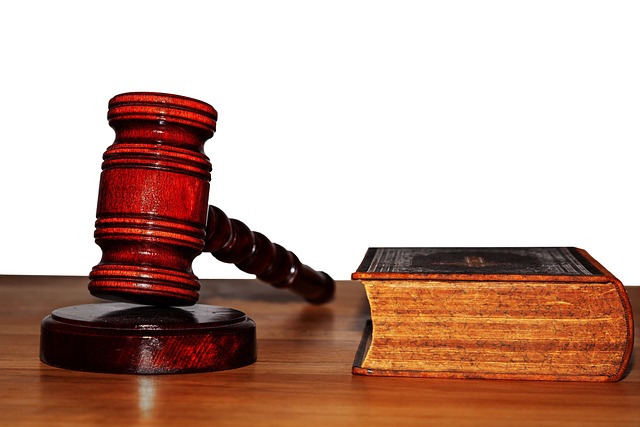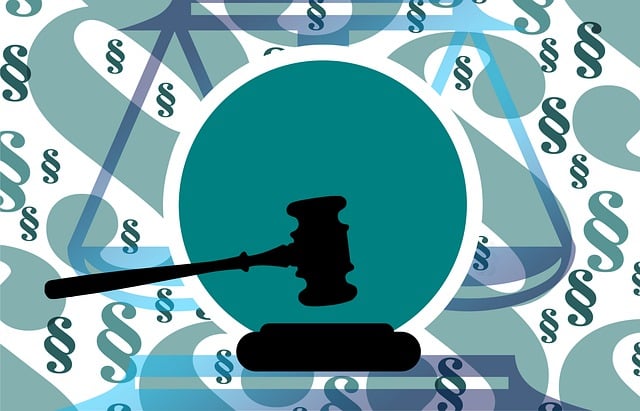Due process is a vital mechanism in public corruption cases, ensuring fair trials and guiding sentencing. It guarantees accused individuals' rights to legal representation, a fair jury trial, and protection from arbitrary procedures. Understanding how due process affects sentencing is crucial for navigating complex financial crimes, fostering trust, and achieving just outcomes, especially in high-stakes corporate and individual cases.
“Public corruption charges carry significant weight, demanding a meticulous balance between justice and due process. This article delves into the intricate legal landscape surrounding these accusations, offering a comprehensive guide for accused individuals navigating their rights. We explore how fair trial principles impact sentencing procedures, highlighting the role of due process in mitigating outcomes. Through real-world case studies, we illustrate the profound consequences of corruption, underscoring the importance of understanding one’s rights in the face of public scrutiny.”
- Understanding Public Corruption Charges: A Legal Perspective
- Due Process Rights: An Overview for Accused Individuals
- Impact of Fair Trial Principles on Sentencing Procedures
- Mitigating Factors: How Due Process Can Influence Outcomes
- Case Studies: Exploring Real-World Consequences of Corruption
Understanding Public Corruption Charges: A Legal Perspective

Public Corruption Charges: A Legal Perspective
Understanding public corruption charges requires delving into the intricate legal landscape where due process plays a pivotal role. In the context of all stages of the investigative and enforcement process, from initial allegations to subsequent trials, this concept is paramount. It ensures that individuals accused of such offenses are treated fairly, with their rights protected at every turn. The complexity lies in balancing the need for effective corruption prosecution with safeguarding civil liberties.
When it comes to sentencing, how due process affects public corruption cases is significant. Accused individuals are entitled to a jury trial, where an impartial jury determines guilt or innocence. This procedural safeguard, coupled with robust legal representation, ensures that the unprecedented track record of successful corruption prosecutions is achieved while maintaining the integrity of the justice system.
Due Process Rights: An Overview for Accused Individuals

When facing public corruption charges, individuals accused must be aware of their due process rights, which are critical in ensuring a fair trial and just sentencing. Due process guarantees that every accused person is entitled to certain protections before and during their criminal prosecution. This includes the right to be informed of the nature and cause of the accusation, allowing for adequate preparation of a defense strategy.
In high-stakes cases where the stakes are high and winning challenging defense verdicts is paramount, understanding how due process affects sentencing is crucial. The accused’s ability to confront witnesses against them, present evidence in their defense, and be protected from self-incrimination are all integral parts of this process. These rights ensure that the prosecution must meet specific legal standards, providing a robust framework to challenge potentially unfair or biased proceedings. This, in turn, can significantly impact the outcome, especially for those involved in general criminal defense.
Impact of Fair Trial Principles on Sentencing Procedures

The principles of a fair trial are instrumental in shaping sentencing procedures, ensuring justice is served without compromising due process. In high-stakes cases, involving corporate and individual clients, the impact of these principles becomes particularly significant. The right to a fair trial guarantees that all parties receive equal treatment before the law, with access to legal representation and the ability to present their defenses effectively. This is crucial in mitigating potential biases and ensuring sentences are based on substantial evidence.
When applied rigorously, fair trial standards influence sentencing by promoting transparency, accountability, and consistency. Judges must adhere to these principles, considering all relevant factors while respecting the rights of both prosecution and defense. This process ensures that sentencing decisions are not only just but also seen as just, fostering public trust in the legal system—a vital aspect for maintaining societal integrity in complex cases.
Mitigating Factors: How Due Process Can Influence Outcomes

In public corruption cases, the concept of due process plays a pivotal role in mitigating potential outcomes. This legal principle ensures that individuals accused of crimes are afforded certain rights and protections before sentencing. When applied appropriately, due process can significantly influence the fairness and integrity of the justice system. It mandates that defendants receive a fair trial, have access to legal representation, and be protected from arbitrary or unfair procedures.
For public corruption charges, which often involve complex financial schemes and intricate legal arguments, having robust due process mechanisms in place is essential. These processes allow for a thorough examination of evidence, enable effective cross-examination of witnesses, and ensure that the rights of the accused are respected. This, in turn, fosters trust in the justice system, especially within the philanthropic and political communities, where transparency and accountability are paramount. Additionally, it facilitates more precise sentencing by considering not just the crime but also the specific circumstances and actions of the defendant, thereby differentiating between white-collar defense strategies and ensuring fairness across the board.
Case Studies: Exploring Real-World Consequences of Corruption

Public corruption charges can have profound real-world consequences, as evidenced by numerous case studies. These high-stakes cases often highlight the intricate interplay between due process and sentencing. When individuals or entities are accused of corrupt practices, ensuring a fair trial and adherence to legal principles become paramount. The impact of due process on sentencing cannot be overstated; it serves as a safeguard against arbitrary decisions.
In many instances, a complete dismissal of all charges may result from a robust application of due process rights. This is particularly crucial in complex cases where the line between corruption and legitimate business activities can be blurred. Understanding the respective business operations and practices within the legal framework is essential for reaching just outcomes. Through meticulous investigation, transparent proceedings, and respect for legal procedures, the justice system aims to balance accountability with preserving the integrity of businesses and individuals accused of corruption.
Public corruption charges significantly impact individuals’ lives, making it crucial to understand the interplay between due process rights and sentencing procedures. As discussed in this article, ensuring fair trial principles is essential in mitigating the outcomes of corruption cases. “How Due Process Affects Sentencing” involves a delicate balance between holding individuals accountable and providing them with robust legal protections. By examining real-world case studies, we can appreciate the profound effects of these processes, underscoring the importance of due diligence and procedural fairness in combating public corruption effectively.






